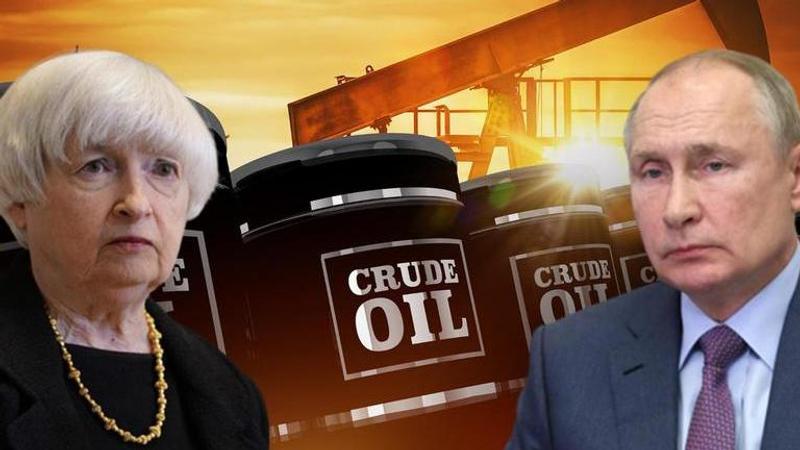Published 15:48 IST, December 3rd 2022
US claims G7 coalition's price cap on Russian oil 'will hit Putin immediately'
Reacting to the recent move, US Treasury Secretary Janet Yellen claimed that the “price cap on Russian oil will hit Putin immediately".

The news of G7 groups and its allies' decision to officially approve a cap on the price of Russian oil carries the potential to provide a big blow to Moscow since Europe used to be one of its biggest buyers before the Russia-Ukraine war broke out in February. Reacting to the recent development, US Treasury Secretary Janet Yellen claimed that the “price cap on Russia oil will immediately cut into Putin’s most important source of revenue.”
On Friday, it was reported that the EU, G7, and Australia have agreed to put a cap on Russian oil prices. The cap will stop countries from paying more than $60 a barrel. The decision was proposed by the G7 group of nations in September, the initial cap was $65-70. However, the initial proposal was rejected by Poland, Lithuania, and Estonia who called the price cap too high. On Friday, the countries expressed their support for the initiative after they were “reassured” that the cap will remain 5% lower than the market rate.
According to BBC, Janet Yellen claimed that “low and medium-income countries that have been heavily impacted by high energy food prices will particularly benefit from the cap.” The US Treasury Secretary further added that it will “further constrain Russian President Vladimir Putin’s finances and limit the revenues he’s using to fund his brutal invasion.” Putting emphasis on Russia’s already contracting economy, Yellen claimed in a statement that the price cap will “immediately cut into Putin’s most important source of revenue.”
Senior Russian politician claims EU is 'jeopardizing its own energy security' with price caps
After the move was announced, in a joint statement the G7, EU, and Australia asserted that the decision to impose a price cap was taken to “prevent Russia from profiting from its war of aggression against Ukraine.” The move is due to come into effect on December 5. According to BBC, the Western bloc is planning to deny insurance to tankers delivering Russian oil to prevent Moscow from making any kind of profit above the price cap. When the Russia-Ukraine war broke out in February, the US had already banned Russian crude oil while the UK expressed its plans to phase out its oil dependence on Moscow by the end of the year.
Reacting to the recent developments, Russia denounced the scheme asserting that it would “not supply those countries which enforced a price cap”. Leonid Slutsky, a Senior Russian politician told Russian News agency Tass News, that the “EU is jeopardising its own energy security with the cap.”
According to International Energy Association, before the Russia-Ukraine war broke out, more than half of Russia’s oil exports went to Europe, with Germany being one of the highest importers of Russian oil. However, things changed once Russia started invading Ukrainian territories in February. Since then the relationship between Europe and Moscow has been complicated.
Updated 15:48 IST, December 3rd 2022




